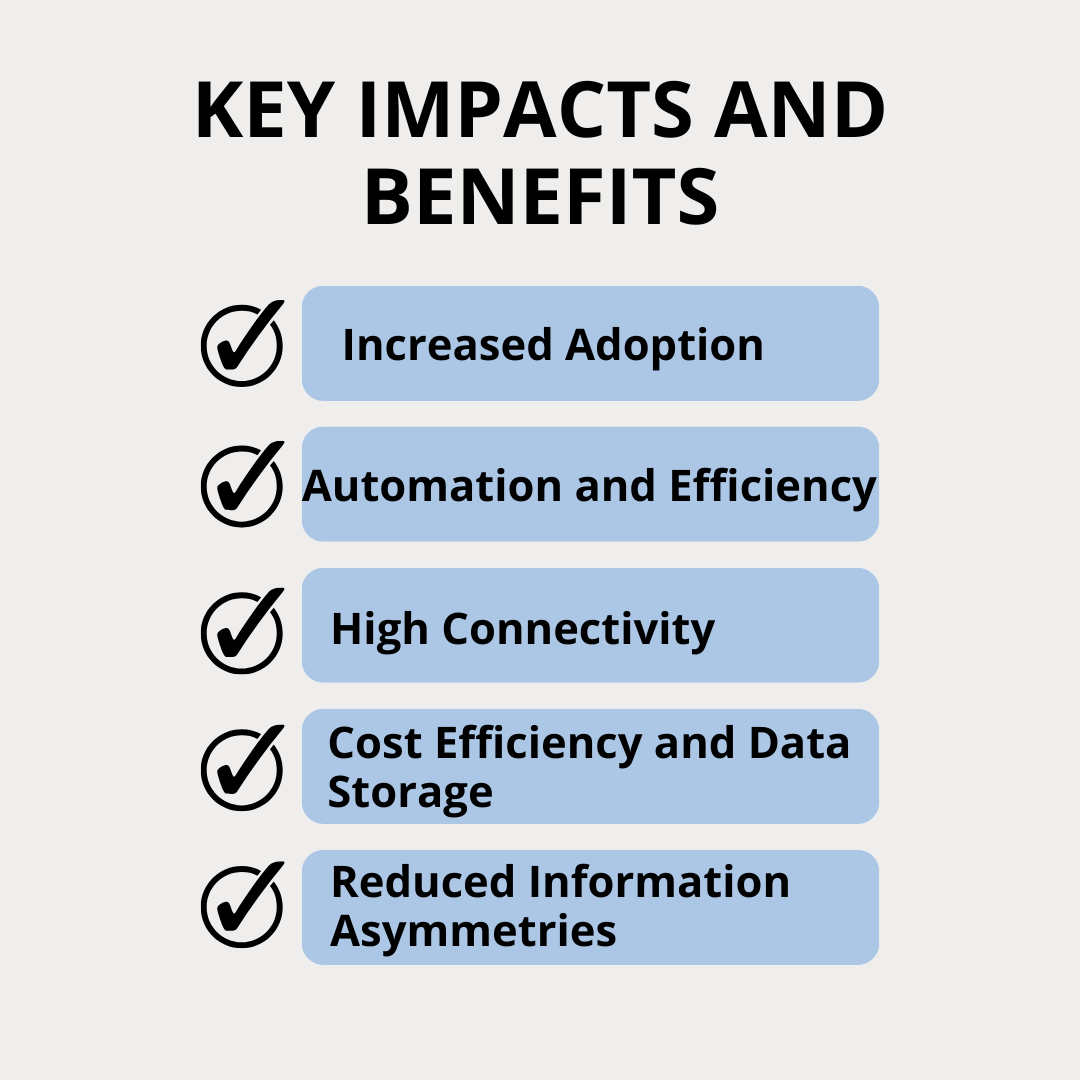FinTech Transformation
FinTech is fundamentally reshaping the financial services sector, driving innovation and expanding the scope of finance. Its impact is widespread, influencing both consumers and businesses.
Key Impacts and Benefits
-
Increased Adoption:
- According to EY's Fintech Adoption Index, a significant portion of the population is actively using and exploring FinTech services, indicating widespread acceptance.
-
Automation and Efficiency:
- Machine learning and artificial intelligence (AI) are automating financial decision-making through predictive analytics and data-driven marketing.
- Businesses benefit from automated customer service through chatbots and AI interfaces, reducing staffing costs and improving efficiency.
- Fraud detection is enhanced through AI-driven analysis of transaction patterns.
-
High Connectivity:
- Mobile technology and smartphones have expanded access to financial services, even in remote areas, through digital payments and ATMs.
-
Cost Efficiency and Data Storage:
- Advances in computing have significantly reduced data storage costs.
- AI and machine learning enable rapid processing of large datasets, facilitating personalized financial services.
-
New Data, Networks, and Business Models:
- FinTech has driven the adoption of big data, machine learning, and AI.
- Digitalization generates vast amounts of data from various sources, leading to the development of new business models like cloud-based computing.
-
Reduced Information Asymmetries:
- FinTech leverages technology to bridge information gaps, improving risk assessments and reducing the need for collateral in lending.
- Peer-to-peer (P2P) lending platforms connect borrowers and lenders directly, eliminating intermediaries.
Key Challenges
-
Data Protection and Privacy:
- Consumers are increasingly concerned about the security and privacy of their data.
- Cybersecurity is a critical issue due to the rise of mobile banking and payment apps.
-
Regulatory Obligations:
- The FinTech transformation has led to increased regulatory scrutiny, requiring financial institutions to comply with various legislative guidelines.
-
Lack of Tech Expertise:
- The financial industry faces a shortage of skilled tech professionals, which can result in user-unfriendly and ineffective FinTech solutions.
- Developing FinTech products without proper expertise can lead to missed opportunities and costly mistakes.
Future Outlook
FinTech is poised for continued growth, but addressing the challenges related to security, regulation, and expertise is crucial. To succeed in the future, organizations need to:
- Build skilled teams of experts.
- Prioritize security and data protection.
- Adapt to evolving regulatory landscapes.
- Revamp thinking, processes, decision making and overall corporate structure.
By addressing these challenges, FinTech can realize its full potential and deliver secure and valuable financial solutions.


No Comments